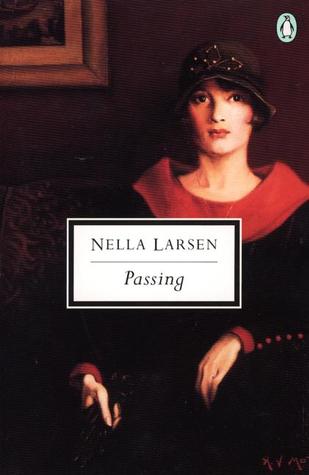It's estimated that hundreds of thousands of black Americans in the first few decades of the 20th century "passed"--that is, they took advantage of their light skin and mixed heritage to pass for white. Nella Larsen's Passing is a novel about the allure that passing presents, and the consequences it exacts. Clare Kendry has been passing for white for decades, ever since the death of her father, a poor janitor, and is even married to a man who crows about his pride in his unblemished white heritage. He jokingly and unsuspectingly calls her "Nig," because she's growing darker as she grows older.
Clare is alluring; men fall for her, both black and white. Is she alluring because her actions are transgressive, or does her willingness to transgress racial barriers come from the special quality of her daring? Clare's foil is the protagonist Irene, a well-off Harlem woman, once a friend of Clare's in high school. They chance upon each other when Irene herself is engaged in a kind of passing herself, dining at an upscale Chicago restaurant knowing that no one will question her racial identity:
Absurd! Impossible! White people were so stupid about such things for all that they usually asserted that they were able to tell; and by the most ridiculous means, finger-nails, palms of hands, shapes of ears, teeth, and other equally silly rot. They always took her for an Italian, a Spaniard, a Mexican, or a gipsy. Never, when she was alone, had they even remotely seemed to suspect that she was a Negro.
Ironically, Irene's ability to "pass" in Chicago before returning to her life in Harlem among blacks makes her freer, in a way, than Clare, who has come to see her white life as a kind of prison she can't escape. She begins to insinuate herself into her old friend's life so that she might vicariously return to the black communities she left behind long ago.
The drama in Passing is largely sexual and psychological. Clare thinks of herself as a prisoner, but Irene fears Clare's transgressive nature and convinces herself that her unhappy husband has fallen in love with Clare. Some critics (the intro to this copy says) find a repressed homosexual desire in Irene's anxiety over Clare; I find that plausible but not totally necessary. Clare's passing has positioned her at the exotic edge of both whiteness and blackness; I read Irene's obsession as a fear borne out of her own committed domesticity. All this comes to a head when Clare's husband shows up to a party to confront her with his discovery about her racial identity, and she falls--or is pushed--out the window. Larsen allows Clare's death to be ambiguous: did she kill herself, because she realized she no longer had a place in the world, white or black? Or was she pushed? And if so, was it her white husband or her black friend? The ambiguity serves to underscore the precarious positioning of the "passing" woman, threatened on both sides by expulsion and rejection.
Passing is very slim, and stuffed with minor characters whose uselessness undermine the elegance of the central narrative. Irene's conflict with her husband is underexplained and unconvincing, even as her obsession and anxiety over Clare makes perfect sense. It reminded me most of the kind of Wharton novel where rich women--Irene and Clare are well-off black women, rare birds in fiction--come to see their social situations as confining, though perhaps with more reason than those Wharton women.


No comments:
Post a Comment